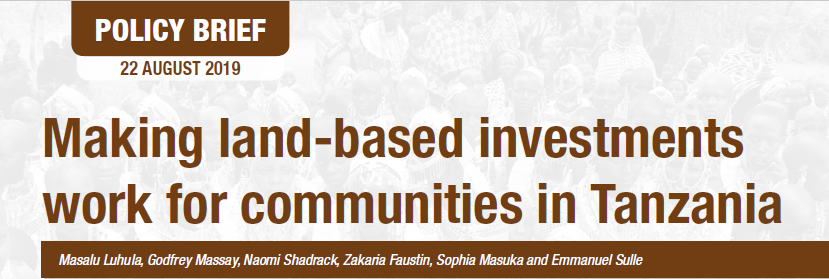CSOs Rally Together to Support Human Rights Activists
Last week several human rights activists were arrested after they protested in Dar es Salaam and released a joint statement to pressurize the government to reconcile with doctors who had been on strike for almost a month. The activists have been released on bail, but may face charges and a court case. Civil society organizations are rallying behind them, calling for the case to be thrown out.
Govt urged to withdraw charges against 16 human rights activists
By Charles Ngereza | 13th February 2012
A Coalition of non-state actors here has called on the government to withdraw charges against several human rights activists alleged to hold illegal assembly in Dar es Salaam in connection with the doctors’ strike last week.
At least 16 activists are now out on bail but sources say they may be taken to court tomorrow to answer charges levelled against them.
Addressing a press conference in Arusha at the weekend, Arusha coalition key speakers said the government should unconditionally throw out the police case against the human rights activists.
“The case against the human rights crusaders is a contravention of the right to freedom of assembly as clearly stipulated in the Constitution,” said Association for Law and Advocacy for Pastoralists (Alapa) executive director Elifuraha Laltaika.
Laltaika, who is also a human rights lawyer, said instead of being charged, the activists deserved praise for exercising their constitutional right under Article 20(1), which provided in part that
"Every person has freedom to freely and peaceably assemble, associate and cooperate with other persons and for that purpose express views publicly. In addition, it is not disputable that activists were pursuing a very noble course since no one in the entire country was pleased by what was befalling sickly Tanzanians following the doctors' strike," Laltaika noted.
He, however, commended the government for coming in good terms with the doctors and making them resume work.
"We should now, as a nation, open a new page and spearhead the development process, while maintaining peace and tranquillity. An unfounded court case will merely disrupt smooth functioning of the civil societies concerned. Let bygones be bygones," Laltaika concluded.
For his part, Pastoralists Indigenous Non-Governmental Organisations (PINGOs) Forum executive director Edward Porokwa said it was high time the government realised that civil societies were an integral part of the country's development.
He viewed the police arrest as a continuation of suppression of alternative views from non-state actors, which characterised some government departments.
"First of all the right to information is abridged and if a person makes some efforts to obtain information he faces stiff opposition,” Porokwa said, adding: “The government must realise that development must go hand in hand with observance of human rights and adherence to good governance principles."
Ujamaa Community Resource Team legal officer Edward Lekaita said the arrest was arbitrary because it took place a day after the alleged unlawful assembly.
"Innocent people were arrested - some of them were not even at the assembly in question. This is very arbitrary," Lekaita said, calling on the government to drop all charges unconditionally.
Arusha NGOs Network official Petro Ahham said arresting and charging the activists, while exercising their constitutional right to the freedom of assembly cast doubts as to whether the proposed new constitution would bring any positive changes.
"We are now in the process of promulgating a new constitution. These arbitrary arrests and unfounded charges create shadows of doubt as to whether the government is committed to improving the human rights’ situation in the country," Ahham noted.
Lendukai Kimaay, the coordinator of the Ngorongoro Youth Development Network said he was in solidarity with the arrested activists adding that such arrests could not intimidate the activists from engaging in noble courses aimed at improving conditions of disadvantaged Tanzanians.
SOURCE: THE GUARDIAN

